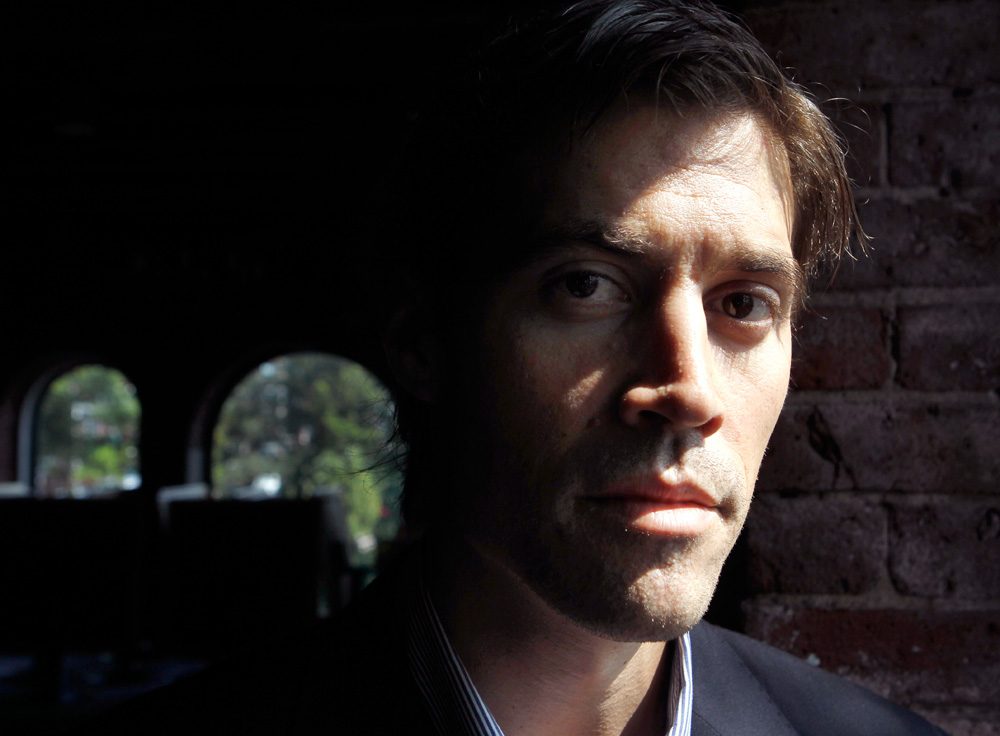Advertisement
Family, Friends Mourn Executed N.H. Journalist

New Hampshire freelance journalist James Foley, long missing in Syria, has been executed. A video posted online Tuesday, attributed to the Islamic State of Iraq and Syria, or ISIS, shows masked militants apparently beheading the 40-year-old.
Unnamed U.S. officials told The Associated Press Tuesday the video is deemed authentic. On Wednesday, additional U.S. intelligence analysts said the video is authentic.
Foley’s family released a statement Tuesday saying they’ve "never been prouder" of their son, and that he “gave his life trying to expose the world to the suffering of the Syrian people.”
It was Thanksgiving Day in 2012, when James Wright Foley went missing in Syria. For the past 630-plus days, his New Hampshire family and his employers have been trying to find him. One of those employers is GlobalPost, an international news website based in Boston. After he went missing in Syria, GlobalPost and other news organizations hired investigators and worked with U.S. authorities. For a while, they thought the Syrian government had detained him.
GlobalPost now says it later learned he was being held by Islamic militants. The news outlet withheld that information in the hopes that Foley’s freedom could be won.
In the new video attributed to Islamic State militants, a visibly distressed Foley criticizes U.S. policy before being brutally executed.
In the family statement, his mother Diane Foley reacted with dignity and compassion, thanking her son for the joy he gave, and imploring the kidnappers to spare the lives of remaining hostages.
GlobalPost is asking for prayers for Foley and his family, and so are those who worked side-by-side with him.
"He was just an incredibly warm person," said Portia Walker, who covered the battle of Sirte in Libya alongside Foley. The independent journalist remembers how he fixed her laptop when it broke, doing so in difficult circumstances with a smile.
Advertisement
"[He was] someone I felt had a huge amount of humility," she added, "but was also completely committed to his work and incredibly brave."
Brave even under fire. In his video reports from war-torn Libya, and later Syria, he told the stories of reluctant rebels, regular people who took up arms against their regimes.
Dan Johnson, one of Foley’s oldest and closest friends, remembered him last year as someone who played down being a war reporter.
"Jim’s real subject isn’t war," Johnson said then. "It’s people. It’s their humanity. Jim trains his camera on accountants, mechanics and oil workers. People much like ourselves, who are frightened, impassioned, even joyful, and who just happen to be at war."
Foley had been captured once before in Libya, by government forces. He was later released and, after recuperating, he promptly returned to report from war zones. Diane Foley spoke about her son in Boston last year on World Press Freedom Day.
"Jim is a very passionate young man," she said then. "Otherwise we wouldn’t have let him go back in. As if we have any control as parents. But Jim is very passionate about telling people’s stories. And had really come to really care for the people of Syria."
Fellow conflict zone reporter Walker says Foley should be remembered for his journalism, and for his humanity.
"[Jim] stayed with me," she said, "because he was very likable, he was very generous."
Walker says it’s devastating to see this happen to anyone, let alone someone like Jim Foley.
This article was originally published on August 20, 2014.
This segment aired on August 20, 2014.
